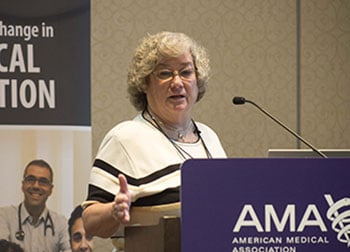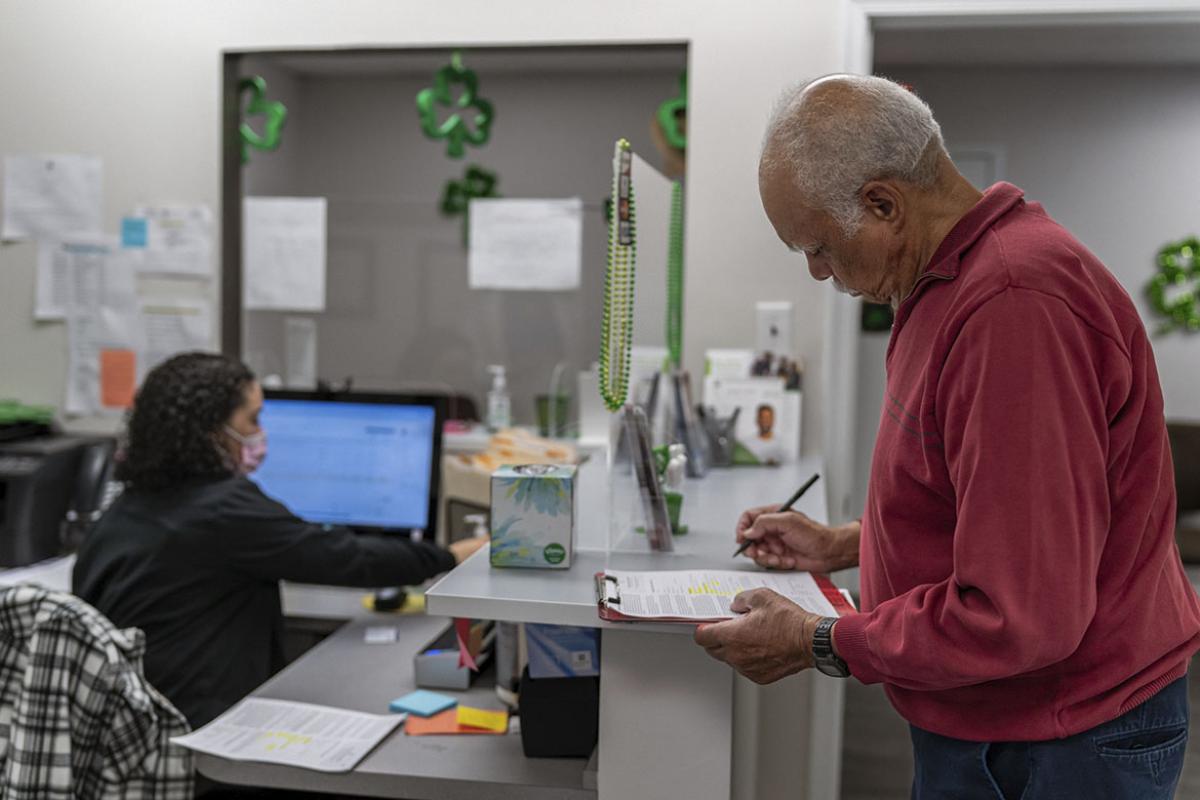Two new medical schools are opening within the University of Texas system, and they’ve tapped the consortium of medical schools in the AMA’s Accelerating Change in Medical Education initiative to help develop forward-thinking curricula that will prepare future physicians for an increasingly complex health care system.
 “We are a brand new school developing an entirely new curriculum,” said Clay Johnston, MD, PhD, dean of Dell Medical School at the University of Texas at Austin, which is scheduled to open in 2016. “Rather than take an existing curriculum, we decided to examine every aspect of curriculum—and that’s a risky proposition.”
“We are a brand new school developing an entirely new curriculum,” said Clay Johnston, MD, PhD, dean of Dell Medical School at the University of Texas at Austin, which is scheduled to open in 2016. “Rather than take an existing curriculum, we decided to examine every aspect of curriculum—and that’s a risky proposition.”
Faculty from some of the 11 schools in the AMA’s Accelerating Change in Medical Education initiative met in Austin with AMA leaders, University of Texas educators and cutting-edge health care technology companies. The University of Texas system soon will have six medical schools with the addition of Dell Medical School and the UT Rio Grande Valley School of Medicine, also scheduled to open in 2016 with a focus on prioritizing health improvements at the individual and community level in underserved areas.
The leaders from the consortium schools shared their progress in changing medical education, from competency-based education to systems-based practice. Tech companies presented new inventions that will make it easier for medical students to acquire robust training using computers and tablets. Look for more details about the newest medical education technology in upcoming articles at AMA Wire®.
Part of the Accelerating Change in Medical Education initiative’s goal for the coming year is to help more schools across the country adopt the innovations the consortium has been testing. The new UT medical schools are a perfect place to start as they develop their new curricula.
 “We want to design the curriculum around adult learning models,” said Sue Cox, MD, executive vice dean of academics and chair of medical education at Dell Medical School at the University of Texas at Austin. “How many of us sat in medical school for eight hours a day listening to a talking head? If we can get students actively learning and doing adaptive learning, we will improve their medical knowledge.”
“We want to design the curriculum around adult learning models,” said Sue Cox, MD, executive vice dean of academics and chair of medical education at Dell Medical School at the University of Texas at Austin. “How many of us sat in medical school for eight hours a day listening to a talking head? If we can get students actively learning and doing adaptive learning, we will improve their medical knowledge.”
The University of Texas system developed a robust online platform that supports competency-based education, allowing students to set their own pace through their education. The online system, called UTx, can track whether students meet their goals and make recommendations on how they can adjust their weekly work plans. The platform will offer personalized programs students can access on the go.
“We are convinced that we need to start creating learning experiences for students that mirror the kind of media they experience in their everyday lives and the kind of functionality they’re used to,” said Marni Baker Stein, chief innovation officer of the Institute for Transformational Learning at the University of Texas system.
The 11 schools that are part of the AMA’s consortium to transform medical education have spent the past year using AMA grants to develop and implement cutting-edge ways to train future physicians. Read more about the schools’ work at AMA Wire®.





